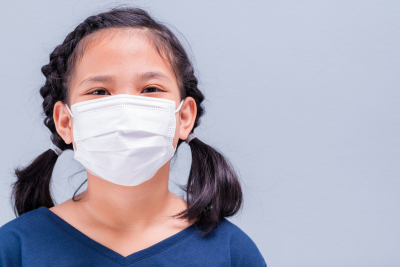Understanding COVID
In the early days of the pandemic, the race was on to figure out how the virus could best be treated and which groups or populations are most susceptible.
Medical experts quickly noticed that the severity of the disease varied substantially between different populations, particularly among older adults and between men and women.
BC Children’s Hospital researchers pivoted their work to investigate the potential causes of these differences and how clinicians worldwide could better treat the disease.
Genetics
Understanding the role of genetics in predicting how sick someone gets with COVID-19 has been an important endeavor. Researchers around the world conducted many genomic studies of COVID patients, including Dr. William Gibson, a BC Children’s Hospital investigator and professor in the department of medical genetics at the University of British Columbia. He suggested that inherited genetic variants of people’s ACE2 receptors could explain why people with COVID-19 had such diversity in severity of the disease.
MIS-C

Clinical Assistant Professor, Division of Allergy & Immunology, Department of Pediatrics, Faculty of Medicine, University of British Columbia
Dr. Catherine Biggs is a clinical immunologist who has been investigating whether inborn errors of the immune system might contribute to more severe COVID-19 disease. In one international study, Dr. Biggs and her colleagues found that around one in five people who died from COVID-19 had pre-existing antibodies that targeted some of their own inflammatory signals. While this condition does not necessarily constitute a major health issue on its own, when combined with a SARS-CoV-2 infection, it could lead to much more serious outcomes. Identifying these factors could help inform new treatments for COVID-19 and provide insights into how the disease develops.
Dr. Biggs is also a leading clinician studying MIS-C, a rare multisystem inflammatory syndrome, which can happen as a reaction to COVID-19 in children.
Impacts on child health
Dr. Laura Sauvé, investigator & medical co-lead for Infection Prevention and Control at BC Children's & BC Women's Hospitals, has been investigating how COVID-19 affects children and the severity of illness if they get infected. Fortunately, at least in the early stages of the pandemic, Dr. Sauvé found that children tended to get less sick from COVID-19 than adults, although in some cases they needed to be hospitalized. The more significant health effects for children in Canada were in the areas of mental health and educational impact.
Treatments
Meanwhile, in May 2020, Dr. Srinivas Murthy became the principal investigator of CATCO (Canadian Treatments for COVID-19), a trial through which researchers evaluated different treatments for hospitalized COVID-19 patients, such as antiretroviral drugs and anti-malarial drugs. This multi-arm trial is still making discoveries about potential treatments, such as this recent work showing that remdesivir reduces the time that patients may need a ventilator.
Dr. Ted Steiner was involved in research to develop a new therapeutic and prophylactic for COVID-19. Dr. Steiner’s work involves creating gut organoids — mini organs in a dish that can be used for laboratory experiments — which allow the international team to test a variety of molecules for their potential to disrupt SARS-CoV-2’s ability to replicate in human cells. This work could lead to new treatments for the disease.
COVID-19 transmission
Another important aspect of understanding SARS-CoV-2 is being able to track how far and how fast it's spreading.
By September 2020, Dr. David Goldfarb and colleagues at the BCCDC Public Health Laboratory and Provincial Laboratory Medicine Services developed a less-invasive way to test parents and children for COVID-19. Instead of a swab in the nose, this test simply involves swishing, gargling and spitting some sterile salt water or saline solution into a tube. The “swish and gargle” method has made it much easier and more comfortable for children, youth and adults to confirm whether they have COVID-19.
Meanwhile, Dr. Manish Sadarangani initiated the SPRING study which aims to help researchers better understand the rates of COVID-19 infection amongst children and youth in B.C. and how those rates change as the pandemic progresses. Participants are tested for antibodies to see if they have been previously infected by SARS-CoV-2, whether they had a PCR confirmed test or not.
